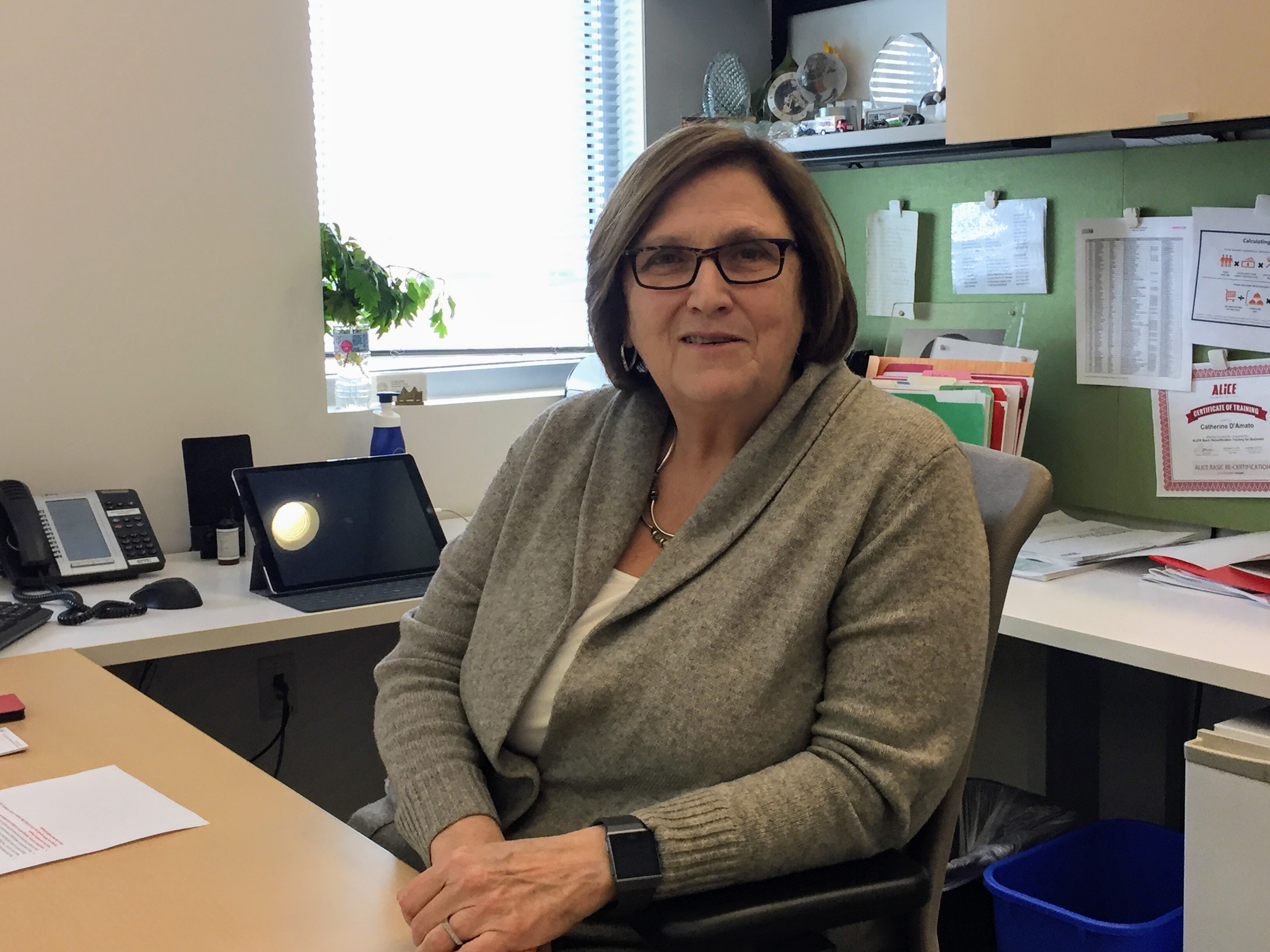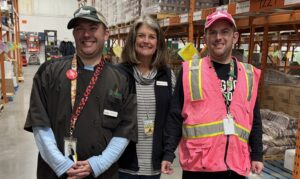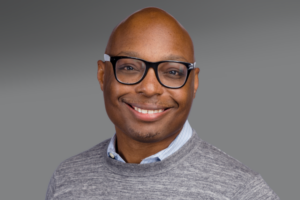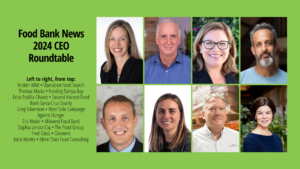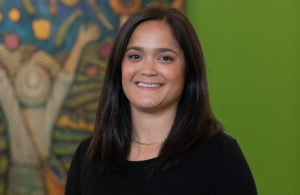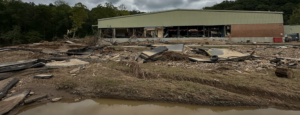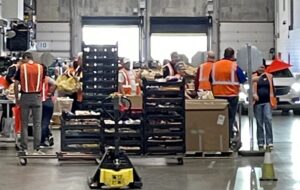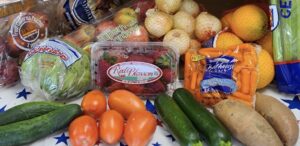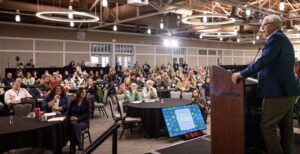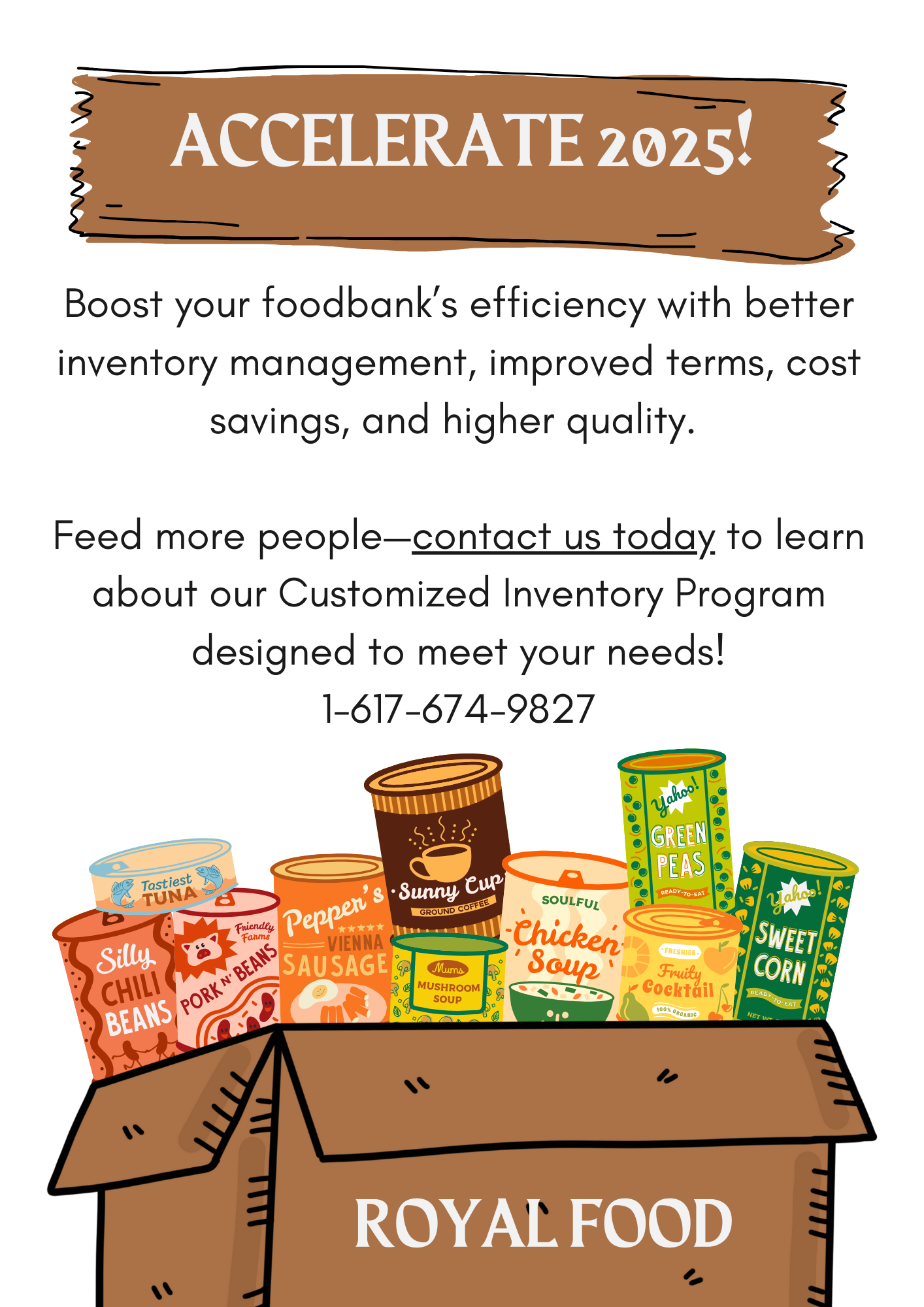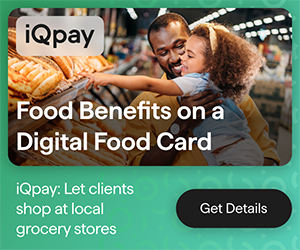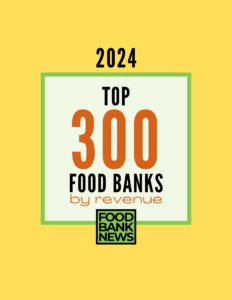In Catherine D’Amato’s vision of the future, doctors will ask patients whether they have enough food in their household just as routinely as they inquire about smoking or alcohol consumption. Hunger will increasingly be viewed as a matter of public health, and public and private entities will work together to thwart it. Eventually, regions around Massachusetts, the state in which the Greater Boston Food Bank operates and where D’Amato works as its president and CEO, will fall into the category of hunger-free.
D’Amato is under no illusion that getting to hunger-free will happen quickly or neatly. To move the process along, she’s amassing resources not typically found in the fight against hunger: top-flight research and high-profile collaborators. “The research piece can help us understand what’s happening,” she said. And collaboration “is where I see us being able to have greater impact.”
GBFB identifies “health and research” as a main organizing principle and counts some of Boston’s elite organizations as its research partners, including Harvard’s School of Nutrition and Boston Consulting Group. In 2017, working with Children’s HealthWatch, it broke new ground with a research project that showed food insecurity and hunger conservatively costs a whopping $2.4 billion in health-related expenses in Massachusetts alone.
Now GBFB is helping to spearhead the Hunger to Health Collaboratory, which combines the expertise of a number of cross-sector entities — including McKinsey & Co., Babson College, Stop & Shop, Museum of Science and Boston Medical Center — in a data-driven effort to improve public health by ending hunger.
A key focus of the collaboratory will be to make food insecurity screenings at the doctor’s office a regular practice, perhaps by making them mandatory throughout the state. “We have an opportunity in Massachusetts, because it’s a small state, to try some of this in a way that would be very difficult to do in other states,” D’Amato noted.
D’Amato is no stranger to relying on research to make change. GBFB currently has relationships with nine healthcare clinics in low-income areas, based on research it undertook three years ago to better understand food insecurity from a public health (versus food bank) perspective. With the research recommending closer partnerships with healthcare centers, GBFB now offers mobile produce markets at most of the sites, as well as food insecurity screenings and resources to connect clients with food assistance in their communities.
GBFB also used the findings of a half-million-dollar research study (performed pro bono) to shift its focus from donations of manufactured food to the rescue of fresh food. The study, which examined the future of the food supply chain, predicted a decline in donations as food retailers and manufacturers increased their efficiency.
D’Amato’s appreciation of serious research belies her lighter side. About six minutes into a podcast on the Hunger to Health Collaboratory website, she does not hesitate to break into a childhood song she wrote about her father, who at one time delivered bread. She will tell you that she ate avocado toast in 1972 and drank kiefer in 1973 — back when it was considered “kooky” — as a way of illustrating how long it takes for consumer interest to catch up to progressive practices.
Her connection to food is heartfelt, given that her grandparents were farmers and her parents ran a restaurant in her native San Francisco, starting from when she was eight. At the restaurant, she was instructed to give free food to needy people who showed up at the back door (and to any priests or nuns who came through the front door), hitting home the point that everyone deserves access to food.
D’Amato’s tenure in the food-bank business began in San Francisco and moved East as food banks, originally a West Coast phenomenon, made their progression across the country. In the eighties in Western Massachusetts, she created the first food-bank farm in the U.S., taking after her grandparents and setting the stage for dozens of other food banks to follow suit. She has been at the helm of GBFB for almost 25 years.
Her long experience provides perspective. She has confidence that food insecurity screenings — and even insurance reimbursements for performing them — are an eventuality because she’s seen other seemingly unrealistic ideas take hold and mature, from food-bank farms to avocado toast. “I’ve seen things become normalized,” she said. “I know it’s possible.”
